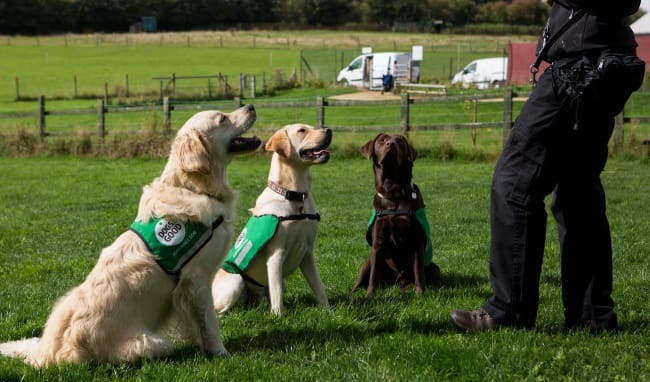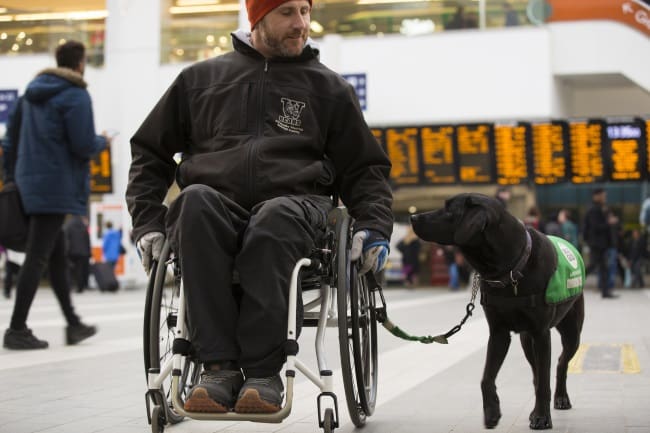
Choosing the right dog breed for an assistance dog
Many assistance dog organisations work with gun dog breeds such as Labradors, golden retrievers and first crosses of the two.
Why do gun dog breeds make good assistance dogs?
We’ve found that gun dog breeds work well for our services as they have a number of strengths that make them perfect partners for people with disabilities:
- Respond positively to training and their handler
- Have well-documented health issues, making a problem quick to diagnose
- Have soft mouths; can fetch items without marking or damage
- Are a good size; easily seen by the side of a wheelchair
- Are familiar and ‘trusted’ by the public which helps to provide a social bridge for their owners
Of course, these are breed generalisations so you won’t necessarily see all of them in each dog. Every dog is an individual.
Our experience of training these breeds

Dogs for Good has been training these breeds to change the lives of people with disabilities for over 30 years. This means we know the strengths and challenges of each breed which is crucial to our success.
When we’re training assistance dogs for people with physical disabilities, we look for dogs that are happy following a person. As long as they have someone leading them they feel safe which allows them to be patient and focused. A patient, focused dog makes a good partner for someone with a physical disability who may find it challenging to verbally guide and support a dog. Find out more about how an assistance dog can help people with physical disabilities.
When we’re training assistance dogs for autistic children, we look for a more actively confident dog that is happy to work on a dual-lead. Find out more about how we train autism assistance dogs.
The best strategy for training golden retrievers is to teach them one thing at a time, to the point of success. Once they have achieved this step, they can move onto the next learning. This can make them more challenging to train than Labradors for example. However, they are very loyal and loving dogs which is an enormous positive once they are trained and go on to live with their owners.
To find out more about our experience of working with each breed, click on the links below:
Breed focus – Labrador
Breed Focus – golden retriever
Breed Focus – Labrador cross golden retriever
Breed Focus – Cockapoo
We are also looking into other breeds that we can either train as assistance dogs or to work in our developing services.